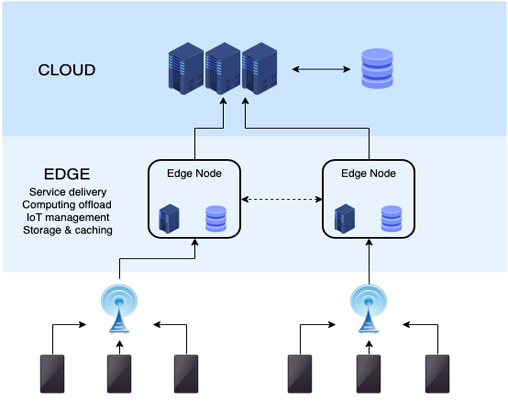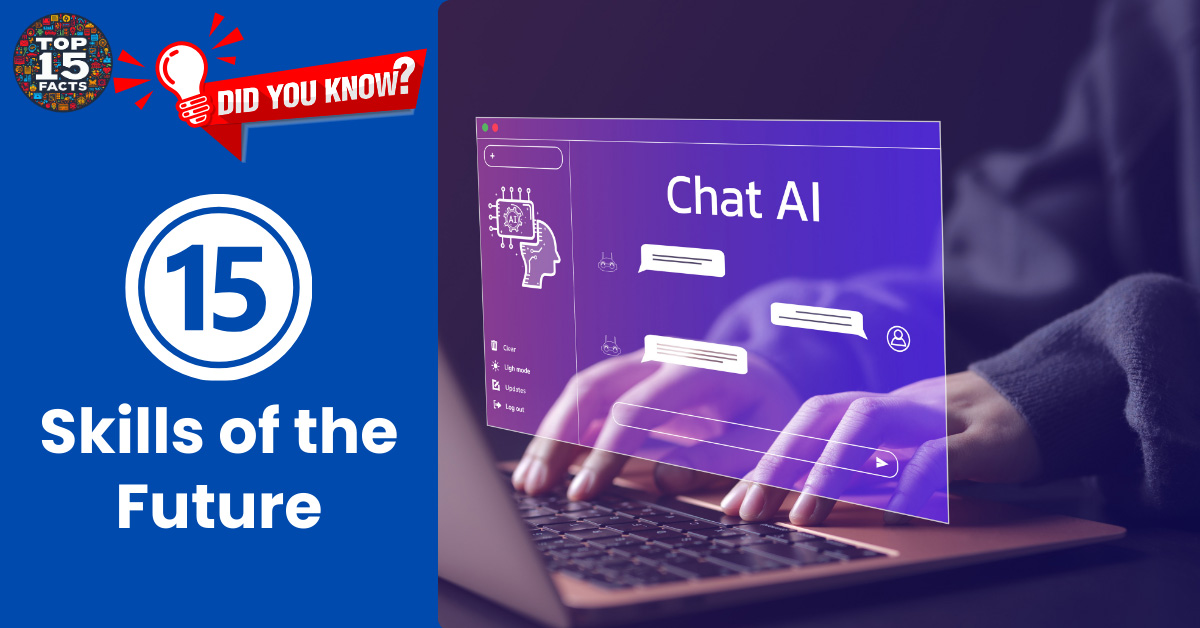The job market is changing fast. Technology is evolving, and so are the skills needed for success.
This article will cover the top 15 skills you need for the future. These skills are essential for staying relevant and competitive. Whether you want to advance in your current role or explore new career paths, knowing these skills will help you get ahead.
We’ll look at each skill, why it matters, and how you can develop it. By the end of this guide, you’ll understand what skills are important and how to prepare for future job roles.
Understanding the Changing Job Market
The Impact of Technology on Jobs
Technology is changing jobs fast. AI, automation, and digital tools are transforming industries. Many tasks that needed human effort now use machines. Some jobs may disappear, but new ones will appear.
AI and machine learning are key areas. They are growing in many fields. Learning to work with these technologies is crucial. It can open new career opportunities.
For example, data analysts now use AI tools to process information. Understanding these tools is a valuable skill. As technology evolves, staying updated with new skills is important. This way, you can remain relevant and competitive.
Read more: The impact of artificial intelligence on employment: the role of virtual agglomeration
The Importance of Adaptability
Adaptability is vital in a changing job market. Being able to learn new skills and adjust quickly is key. Those who adapt can thrive.
During the pandemic, many shifted to remote work. They learned new tools and online collaboration. This showed the importance of being adaptable.
Continuous learning is also crucial. The more you learn, the better you can handle changes. This guide will help you identify and develop important future skills. Staying adaptable and committed to learning will help you succeed.
Top 15 Skills of the Future (one line)
- Data Literacy: “Master the art of interpreting and analyzing data to drive informed decisions.”
- Artificial Intelligence and Machine Learning: “Harness the power of AI and ML to automate tasks and uncover insights.”
- Cybersecurity: “Protect digital assets with essential skills in safeguarding against cyber threats.”
- Cloud Computing: “Utilize cloud technology to manage and scale resources efficiently.”
- Blockchain Technology: “Securely record transactions and data with blockchain innovation.”
- Digital Marketing: “Drive online growth with effective digital marketing strategies and tools.”
- Project Management: “Lead and deliver projects on time and within budget with strong management skills.”
- Emotional Intelligence (EQ): “Enhance workplace relationships and leadership with high emotional intelligence.”
- Critical Thinking and Problem-Solving: “Solve complex problems and make informed decisions with sharp critical thinking.”
- Creativity and Innovation: “Generate groundbreaking ideas and solutions with creative and innovative thinking.”
- Collaboration and Teamwork: “Achieve success through effective teamwork and collaboration skills.”
- Digital Literacy: “Navigate technology and digital tools with essential digital literacy skills.”
- UX/UI Design: “Create user-friendly and engaging digital experiences with UX/UI design skills.”
- Edge Computing: “Accelerate data processing and efficiency with edge computing technology.”
- Quantum Computing: “Explore the future of computation with advanced quantum computing techniques.”
1. Data Literacy

Data literacy is the ability to read, understand, and work with data. In a data-driven world, this skill is essential. Companies rely on data to make decisions. Being data literate means you can analyze and interpret information effectively.
You can start by learning basic data analysis tools like Excel or Google Sheets. Online courses and tutorials are helpful. Practice by working on small data projects. This will build your confidence.
In the future, data literacy will be crucial for many jobs. Whether you are in marketing, finance, or technology, understanding data will set you apart. It helps in making informed decisions and spotting trends.
2. Artificial Intelligence and Machine Learning

Artificial intelligence (AI) and machine learning (ML) are shaping the future. These technologies automate tasks and analyze large amounts of data. Knowing how AI and ML work is a valuable skill.
Start with the basics. Learn about algorithms and data processing. Many online courses offer introductions to AI and ML. Platforms like Coursera and Udemy have great resources.
Practical experience is important. Try building simple AI models or participate in online competitions. This hands-on approach will deepen your understanding.
AI and ML are used in many fields, from healthcare to finance. Mastering these skills can open many doors. They are critical for future job roles and will help you stay competitive.
Read more: Future of AI (Artificial Intelligence): What Lies Ahead?
3. Cybersecurity

Cybersecurity is all about protecting data and systems from attacks. As more data is stored online, this skill is crucial. Cyber threats are increasing, making security a top priority for businesses.
Start by learning the basics of online security. Understand common threats like phishing and malware. There are many free resources and courses online to get you started.
Practice is key. Set up your own security measures on personal devices. Try out cybersecurity tools and software. Getting certified can also help. Look into certifications like CompTIA Security+ or Certified Ethical Hacker (CEH).
Cybersecurity skills are in high demand. They are vital for protecting sensitive information and maintaining trust. This makes you a valuable asset to any organization.
Read More: Top 15 Amazing Facts About Famous Scientists
4. Cloud Computing

Cloud computing involves using remote servers to store, manage, and process data. It’s become essential for businesses to scale their operations and manage resources efficiently.
Begin by understanding what cloud computing is and how it works. Learn about major cloud providers like Amazon Web Services (AWS), Microsoft Azure, and Google Cloud Platform (GCP). Many of these providers offer free training and introductory courses.
Hands-on experience is important. Start by using cloud services for personal projects. Practice deploying applications or managing virtual machines. Certifications like AWS Certified Solutions Architect or Google Cloud Certified can enhance your skills.
Cloud computing skills are in high demand. They are crucial for managing modern IT infrastructure and can lead to various career opportunities.
Read more: 15 Key Skills for a Career in Cloud Computing
5. Blockchain Technology

Blockchain technology is known for its role in cryptocurrencies like Bitcoin. However, its uses extend far beyond that. It provides a secure way to record transactions and manage data.
To get started, learn the basics of how blockchain works. Understand terms like decentralization and smart contracts. There are many online courses and resources available to help you grasp these concepts.
Try experimenting with blockchain platforms like Ethereum. Build simple projects or participate in blockchain communities. This hands-on experience will help solidify your knowledge.
Blockchain skills are valuable for various industries, from finance to supply chain management. As more businesses adopt this technology, understanding it will give you a competitive edge.
6. Digital Marketing

Digital marketing is more than just posting on social media. It’s about using online tools to reach and engage customers. Imagine running a small business. You need to attract customers and stand out from competitors. Digital marketing makes this possible.
Start by learning the fundamentals: SEO, content marketing, and social media strategies. Online courses from platforms like HubSpot Academy or Google Digital Garage offer great introductions.
Try creating your own marketing campaigns. Use social media ads or write blog posts to practice. Analyzing results and adjusting strategies is key.
With digital marketing skills, you can drive growth and visibility. These skills are crucial as businesses increasingly move online. Master them, and you’ll help companies thrive in the digital world.
Read more: 5 Reasons to Select Digital Marketing as a Career
7. Project Management

Project management is about leading teams and delivering projects on time and within budget. Picture organizing a charity event. You need to coordinate volunteers, manage budgets, and ensure everything runs smoothly.
Start by learning project management methodologies like Agile or Waterfall. Online courses and certifications can teach you these methods.
Practice by leading small projects. Use tools like Asana or Trello to manage tasks. Communication and organization are key skills here.
Project management skills are valuable in any industry. They show you can handle complex tasks and lead teams effectively. Mastering them opens doors to managerial roles and career advancement.
Read More: Top 15 Mind-Blowing Facts About Your Brain
8. Emotional Intelligence (EQ)

Emotional intelligence, or EQ, is understanding and managing your emotions and those of others. Think about a time when you handled a difficult colleague with empathy and patience. That’s EQ in action.
To boost your EQ, start by practicing self-awareness. Reflect on your reactions and emotions. Listen actively when others speak, and try to understand their perspectives.
Building EQ takes time. Try mindfulness exercises and seek feedback from peers. Read books on emotional intelligence to deepen your understanding.
EQ is crucial for leadership and teamwork. It helps you navigate workplace challenges and build strong relationships. High EQ sets you apart and enhances your professional interactions.
9. Critical Thinking and Problem-Solving

Critical thinking and problem-solving are about analyzing information and finding effective solutions. Imagine you’re given a complex issue at work, like a project that’s falling behind schedule. Your ability to break down the problem and come up with a plan is what counts.
Start by practicing with puzzles and brainteasers. They sharpen your analytical skills. Engage in discussions and debates to refine your reasoning abilities.
Apply these skills to real-life scenarios. Tackle problems at work or in your personal life. The more you practice, the better you become.
Critical thinking helps you make informed decisions and solve problems efficiently. It’s a key skill that will make you stand out in any job.
Read more: Why Is Critical Thinking Important? A Survival Guide
10. Creativity and Innovation

Creativity and innovation are about thinking outside the box and generating new ideas. Imagine you’re tasked with improving a product or service. Your ability to brainstorm creative solutions sets you apart.
Start by exploring different creative techniques. Practice brainstorming sessions with colleagues or alone. Keep an idea journal to capture inspiration.
Challenge yourself to look at problems from different angles. Experiment with new approaches and be open to unconventional ideas.
Creativity fuels innovation in business and technology. It drives growth and helps organizations stay competitive. Mastering these skills can lead to exciting opportunities in product development and entrepreneurship.
11. Collaboration and Teamwork

Collaboration and teamwork are about working effectively with others to achieve common goals. Think of a successful project team where every member contributes their unique skills. Effective teamwork makes the dream work.
Start by improving your communication skills. Practice active listening and clear expression. Participate in team activities or projects to build trust and cooperation.
Use collaboration tools like Slack or Microsoft Teams to enhance group work. Understanding team dynamics and being adaptable are crucial.
Strong collaboration skills are essential in today’s work environment, where teamwork is often key to success. Being a reliable team player can boost your career and lead to better project outcomes.
12. Digital Literacy

Digital literacy means using technology effectively. Imagine navigating various apps and online tools for work. Being digitally literate means, you can handle these tasks with ease.
Start by familiarizing yourself with basic software and apps. Learn how to use word processors, spreadsheets, and presentation tools. Explore online platforms and social media.
Digital literacy is essential in almost every job today. It helps you work efficiently and stay connected in the modern world. Mastering these skills will make you more adaptable and effective.
Read more : What is Digital Literacy, Its Importance, and Challenges?
13. UX/UI Design

UX/UI design focuses on creating user-friendly interfaces and experiences. Imagine using an app or website that’s intuitive and easy to navigate—that’s the result of good UX/UI design.
Start by learning the principles of user experience (UX) and user interface (UI) design. Understand how design affects user interaction and engagement.
Practice by redesigning interfaces or creating mockups. Use design tools like Adobe XD or Sketch to prototype your ideas. Solicit feedback to improve your designs.
UX/UI design is crucial for companies wanting to deliver a great user experience. It combines creativity with problem-solving to enhance usability and customer satisfaction. Mastering these skills can lead to exciting opportunities in digital design and product development.
14. Edge Computing

Edge computing is about processing data closer to where it’s generated, rather than sending it to a central server. Picture a smart factory where machines process data locally to make real-time decisions. This reduces latency and improves efficiency.
Start by learning the basics of edge computing and its benefits. Understand how it differs from traditional cloud computing. Explore how edge devices and sensors are used in various industries.
Edge computing is crucial for applications that need fast processing and low latency, like IoT devices and autonomous vehicles. Mastering these skills can place you at the forefront of technological innovation.
Read More: Discover the Latest Tech Innovations | Stay Ahead of the Curve
15. Quantum Computing

Quantum computing is a new technology that uses the principles of quantum mechanics to process information. Imagine solving complex problems much faster than with traditional computers. Quantum computing makes this possible.
Start by understanding the basics of quantum mechanics and quantum bits (qubits). Explore how quantum computers perform calculations using superposition and entanglement.
Learn from online courses and resources that explain quantum algorithms and applications. Experiment with quantum programming languages like Qiskit.
Quantum computing is still developing, but it has the potential to revolutionize fields like cryptography, materials science, and complex system simulations. Mastering these skills positions you at the cutting edge of technology and future breakthroughs.
Final note:
As the job market evolves, mastering the top 15 skills of the future will be key to staying competitive and relevant. From data literacy and AI to quantum computing, each skill is essential for navigating and excelling in a rapidly changing world.
Think about which skills align with your interests and career goals. Start learning and practicing today. Online courses, hands-on projects, and real-world applications will help you build and refine these abilities.
By developing these skills, you’ll be better prepared for future job opportunities and career advancements. Embrace the journey of continuous learning and adaptability, and you’ll set yourself up for success in the evolving workforce.
15 FAQ’s (frequently asked questions):
-
What emerging skills will be most valuable in the next decade?
Skills like artificial intelligence ethics, autonomous systems management, and advanced robotics are expected to gain significant value as technology progresses.
-
How can businesses leverage data literacy to gain a competitive edge?
Businesses can use data literacy to identify market trends, optimize operations, and personalize customer experiences, leading to better decision-making and competitive advantage.
-
What are some practical applications of AI and machine learning in everyday life?
AI and machine learning are used in virtual assistants, personalized recommendations on streaming services, and smart home devices, making daily tasks more convenient.
-
How can individuals stay updated with the latest developments in cybersecurity?
To stay updated, individuals can follow cybersecurity blogs, attend webinars, and participate in online forums or professional networks dedicated to security trends.
-
What are the environmental benefits of cloud computing?
Cloud computing reduces the need for physical hardware, leading to lower energy consumption and fewer electronic waste issues, contributing to environmental sustainability.
-
How can blockchain technology be used beyond cryptocurrencies?
Blockchain can be applied in supply chain management, secure voting systems, and digital identity verification, enhancing transparency and security in various sectors.
-
What are some advanced digital marketing strategies that are emerging?
Advanced strategies include leveraging artificial intelligence for predictive analytics, using augmented reality for interactive ads, and implementing blockchain for transparent ad transactions.
-
How do project management methodologies like Agile and Waterfall differ in practice?
Agile focuses on iterative progress and flexibility with regular updates, while Waterfall is a linear, step-by-step approach with distinct phases and milestones.
-
Can emotional intelligence improve team dynamics and productivity?
Yes, emotional intelligence helps manage team conflicts, fosters a supportive work environment, and enhances communication, leading to increased productivity and better team dynamics.
-
What role does critical thinking play in innovation and technology development?
Critical thinking drives innovation by challenging existing solutions, identifying new opportunities, and refining ideas through careful analysis and evaluation.
-
How can businesses foster a culture of creativity and innovation?
Businesses can encourage creativity by providing employees with freedom to explore new ideas, offering training workshops, and creating an environment that supports experimentation and risk-taking.
-
What tools and platforms can enhance collaboration in remote teams?
Tools like Slack for communication, Zoom for virtual meetings, and Asana for project management can improve collaboration and keep remote teams connected and organized.
-
How can digital literacy be integrated into educational curriculums?
Schools can integrate digital literacy by including courses on technology use, online safety, and basic coding skills, preparing students for a tech-driven world.
-
What are some common challenges in UX/UI design and how can they be addressed?
Challenges include ensuring accessibility for all users and balancing aesthetics with functionality. Solutions involve user testing, incorporating feedback, and adhering to design best practices.
-
What potential impacts could quantum computing have on industries like healthcare and finance?
Quantum computing could revolutionize healthcare by speeding up drug discovery and genetic research, and transform finance by enhancing risk analysis and portfolio optimization.

